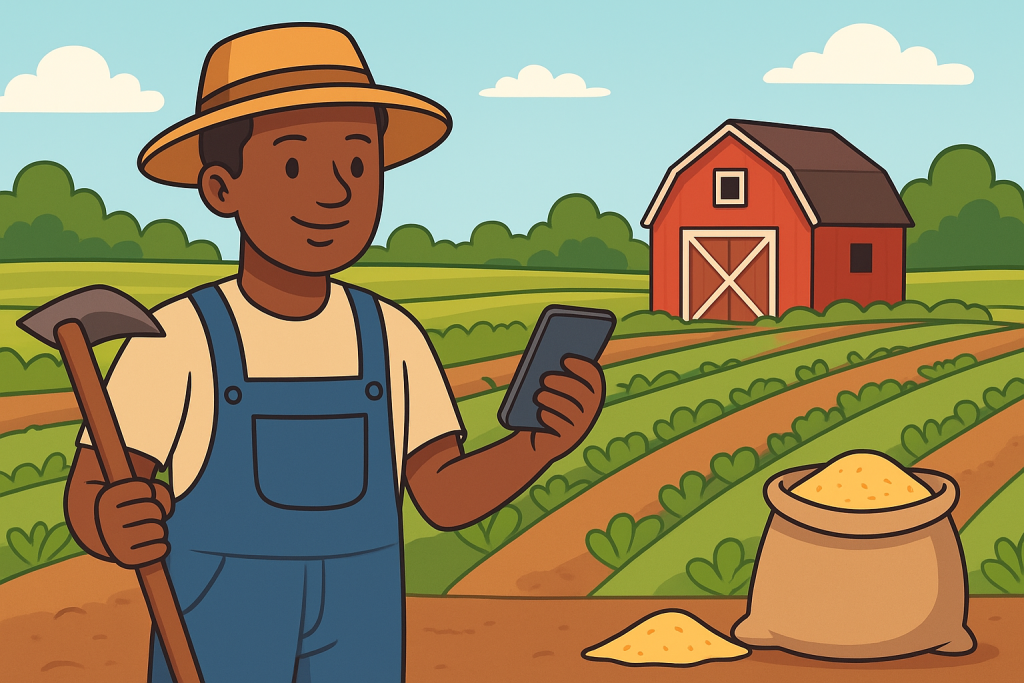The Niger State Government has announced its decision to set up a state-owned cooperative bank dedicated to agriculture. The move is aimed at giving smallholder farmers easier and quicker access to soft loans.
This development was confirmed on Thursday by top government officials, who stressed that the bank will play a key role in boosting food production and supporting rural communities across the state.
Why the Bank Matters
Access to credit has always been one of the biggest challenges facing smallholder farmers in Nigeria. Many farmers find it difficult to secure loans from commercial banks due to high interest rates, strict requirements, and lack of collateral.
The proposed cooperative bank is designed to close this gap. By offering soft loans with flexible repayment options, it will help farmers invest in better seeds, fertilizers, equipment, and irrigation systems.
According to the state government, the ultimate goal is to make farming more profitable and sustainable, while also ensuring food security in Niger State and beyond.
Boosting Agricultural Growth
Agriculture is the backbone of Niger State’s economy. The state is one of the largest producers of rice, maize, millet, and groundnuts in Nigeria. However, despite the potential, many farmers still operate at subsistence levels because they lack financial support.
The cooperative bank is expected to change that narrative. With improved access to loans, farmers will be able to expand their farms, adopt modern farming practices, and improve yields.
Officials also noted that the bank will create employment opportunities, especially for youths and women in rural areas who depend heavily on farming.
Supporting Food Security
Nigeria is currently facing food inflation, with rising prices of staples like rice, maize, and beans. Experts believe that investments in smallholder farmers are key to solving the crisis.
By creating a cooperative bank, Niger State is positioning itself as a model for other states. If successful, the initiative could help reduce Nigeria’s reliance on food imports and strengthen the country’s food supply chain.
Transparency and Accountability
The state government assured citizens that the bank will be run with transparency and accountability. Measures will be put in place to ensure that loans reach genuine farmers rather than middlemen.
Community leaders and farmer associations are also expected to play a role in the management of the bank. This approach is meant to build trust and encourage more farmers to take advantage of the facility.
Farmers React
Reactions from farmers across the state have been positive. Many said the initiative gives them hope that their struggles will finally be addressed.
Musa Ibrahim, a rice farmer in Bida, said:
“This bank will be a blessing for us. Commercial banks always reject us because we don’t have collateral. With this, we can farm better and feed our families.”
Similarly, Fatima Aliyu, a groundnut farmer in Kontagora, noted that the cooperative bank would empower rural women who are often excluded from financial systems.
Next Steps
The state government disclosed that a framework for the bank’s operations is already being drafted. Consultations with financial experts, cooperative societies, and farmers’ unions are ongoing to ensure the project succeeds.
Officials hinted that the bank could begin operations as early as mid-2026 once all regulatory approvals are secured.
The establishment of a cooperative agricultural bank by Niger State is a bold step toward tackling farmers’ financial challenges. With access to soft loans, smallholder farmers will be better equipped to increase food production, strengthen food security, and boost the state’s economy.
If implemented effectively, the initiative could serve as a model for other states in Nigeria, paving the way for a stronger agricultural sector nationwide.



